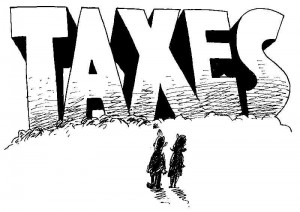Tax Return Requirements for Nonresidents with U.S. Assets
October 30, 2014
Individual nonresidents in the U.S. may be subjected to estate taxes under U.S. regulations if the individuals owned U.S. assets. There are several different items that might quality as U.S. assets, such as personal property, securities of companies based in the U.S., and real estate situated in the country. There are some regulations when it comes to stock holdings, as well, even if you help the certificates abroad or maintained those certificate registrations under the name of another person. If the stock holdings are U.S. companies, those assets may also be subject to estate taxes.
There are exceptions to these rules, though. If the securities you hold generate portfolio interest, are received from

insurance proceeds, or are bank accounts linked to businesses or trades not in the United States, the assets are exempted. Executors who are servicing the estate of a deceased nonresident with U.S. assets will need to file an estate tax return with the IRS in the event that the fair market value of the U.S. assets is greater than $60,000. This is know as form 706NA, and it can still be required if the value of the assets is less than $60,000 on the date of death in some situations.
There are ways to plan around this to help avoid any unnecessary taxation. Speaking with an experienced estate and tax attorney can aid in the identification of proper strategies to plan for these kinds of assets. One such tactic, for example, is in owning these assets inside a properly structured trust rather than owning each asset individually.
International investors should be aware of these regulations and opportunities for a planning conversation. To set up a plan that minimizes taxes by structuring the position of assets properly, contact Shah & Associates at 732-521-9455.





